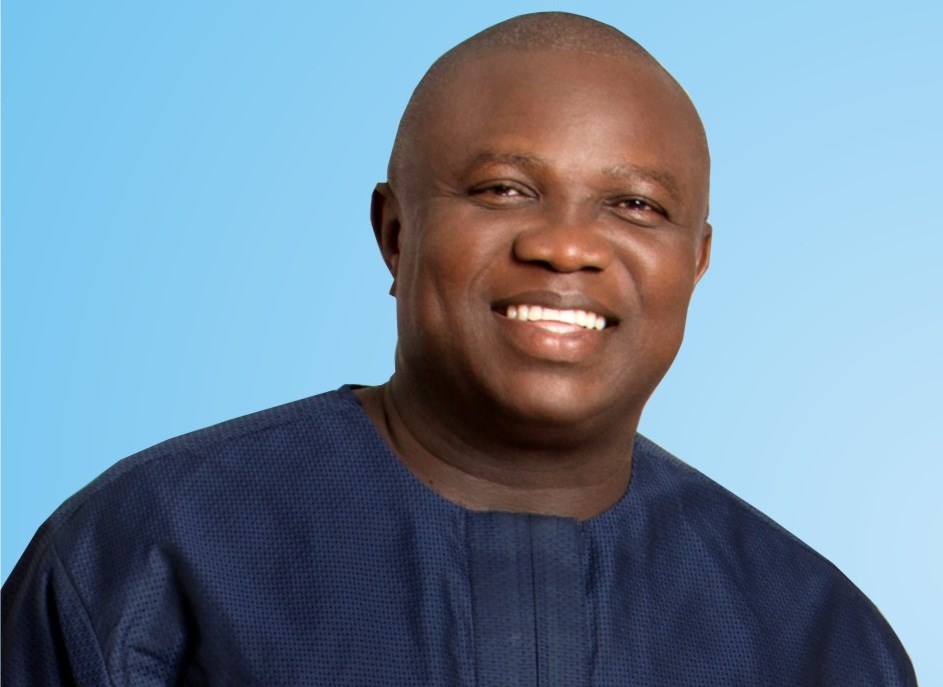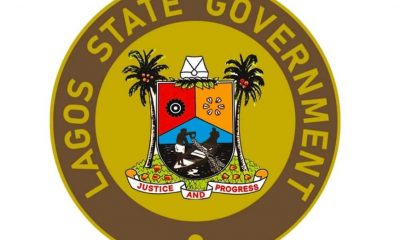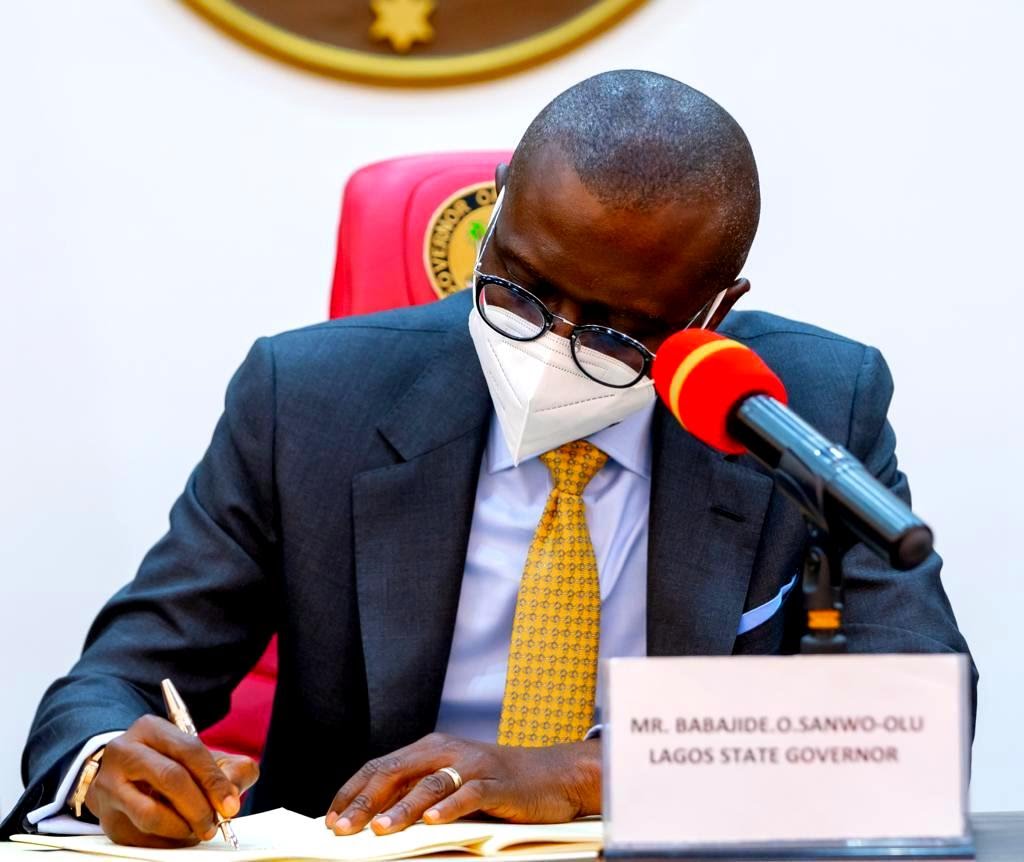Featured
Lagos Govt explains controversial Land Use Charge
Published
8 years agoon
By
Olu Emmanuel
Lagos State Government has continued to offer explanations on the controversial Land Use Charge that has sparked protests in the state since the enactment of the law. The Commissioner for Finance, Mr. Ashade, remarked that the controversial increment is an aggregated tax that combines three erstwhile separate taxes, namely, tenement rate, ground rent and neighbourhood improvement levy into one.
Ashade stated that Land Use Charge had been trending for the wrong reasons recently, explaining that instead of paying three different taxes, the tax payer pays just one consolidated tax.
The Commissioner declared: “Land Use Charge is not new in Lagos, neither has it been arbitrarily introduced to the state. Rather, it emanated from a long process of deliberation, consultation and engagement, all of which typically precede law-making.
“Indeed, implementation of this particular tax was sequel to the passage of the Land Use Charge Law of 2001 as promulgated by the Lagos State House of Assembly.
“The law has, therefore, been operational since 2001. Its stipulations are also fairly simple. It essentially applies to defined categories of properties which are in turn required to pay taxes that vary in accordance with the categories.
“In calculating the Land Use Charge payable on a property, a simple formula is applied: the estimated value of the property is multiplied by relief rate and further multiplied by the appropriate charge rate.”
The Finance Commissioner further explained: “The `charge rate’ is a relatively small percentage charge that is applied to different categories of property depending on their categorization. A property that is occupied by the owner for instance, enjoys the lowest charge rate.
“A property that is used for industrial or manufacturing activity is categorized as `industrial’ and is charged higher than owner-occupied properties but considerably lower than `commercial’ properties.
“Commercial properties are those properties that are deemed to be fully utilised for commercial activity — a bank branch for instance. There are a few categories in-between.
“There is also the `relief rate’ which refers to a discount on the calculated charge.’’
Ashade said the Land Use Charge Law of 2001 stipulated that reviews of the charges payable be made on a five-year basis but for some reason this did not happen.
He noted that in 2017, for instance, properties were paying charges based on rates that were last determined in 2001, arguing that clearly, after 16 years, those charges had largely become obsolete.
The Commissioner said that property valuation did not appear to always follow a uniform standard and that there were often stark variations in property valuation that were inequitable.
“Furthermore, property enumeration did not appear to be proceeding as fast as it ought to and a considerable chunk of properties was actually not paying this charge.
“These were some of the inefficiencies in the old Land Use Charge regime that prompted the Lagos State House of Assembly to repeal the old law and promulgate a new one.
“In the course of today’s trending debate on Land Use Charge, some commentators have tried to create the impression that the Lagos State Government arbitrarily, without engaging or consulting different stakeholders, increased the Land Use Charge rates payable in Lagos.
“This is not true. The process of the review of the old law and promulgation of the new Land Use Charge Law by the Lagos State House of Assembly was elaborate and painstaking,’’ he said.
Ashade said the draft legislation was rigorously interrogated and debated at the Assembly not only at committee level but over two separate hearings and that memoranda were invited from dozens of stakeholder groups, including civil society groups, community development associations, leadership of local government councils and local council development areas.
He said the revised bill was eventually signed into law last February by Governor Ambode, noting that the new Land Use Charge law was different from the old law in some respects.
The Commissioner narrated that, “First, in the valuation of property, the new law prescribes that this should be done using prevailing market rates. While I admit that this has expectedly increased the charges that property owners are expected to pay, I should add that it has helped to standardize the Land Use Charge regime, eliminating the opacity that was associated with the older law wherein calculation of property value was sometimes based on the whims and disposition of the assessor.’’
Ashade recalled that with the Land Use Charge regime not undergoing any review for 16 years, as at 2017 before the repeal of the old law, rates payable had become significantly obsolete.
“So when some people complain that their rates have gone up by 300 per cent over last year’s rates, the truth is that the rates have actually gone up for the first time since 2001.
“In adjusting the bill of a property owner from the N1,200 which he paid annually between 2002 and 2017 to N5,000 annually for instance, the new regime has simply tried to bring the charge up-to-date and in line with present day realities, regardless of the percentage increase.
“This is not to say, however, that the entire Land Use Charge administration is working perfectly. It isn’t.
“Like all systems which employ human intermediaries, there are occasional errors, especially, where `Best of Judgement’ has been employed in determining the scope and size of a property and the exact use to which it is put.
“This typically happens where property enumerators are denied access to these properties. I would, therefore, like to implore Lagosians to kindly avail our enumerators of as much cooperation as possible when they visit your properties.
“This is to help ensure that ultimately accurate variables are used in determining the rates chargeable on each property,’’ Ashade stated.
The Commissioner further highlighted: “The Land Use Charge bills are on paper demand notices, not etched in stone. Property owners who find their bills contestable are encouraged to contact the Land Use Charge Office Help Desk at Alausa or indeed any of our offices spread across Lagos.
“There are also provisions for mediation. If after all of this, a citizen remains unsatisfied, he may proceed to the Appeal Tribunal.’’
Ashade said that even though the law clearly stipulates that upon receiving a demand notice, payment must be made within 14 days, failure of which different penalties of up to 200 per cent of the original bill would begin to apply, the reality is that the State Government is making key concessions in this area.
“We appreciate that the economic situation has impacted everyone significantly and that the increases are steeper for some property owners than others.
“Property owners who are unable to pay the full charge up front can engage the Land Use Charge officials and jointly agree on a staggered payment plan. So, the argument that government expects everyone to pay this charge in full upfront, regardless of your economic circumstances, is not correct,’’ Ashade said.
He said the new Land Use Charge regime also has several reliefs or discounts that were designed to cushion the impact of the charge on property owners, noting that Pensioners who were aged 70 and above and who live in their own houses, were not expected to pay Land Use Charge.
“Every property enjoys a general 40 per cent discount on the calculated market value. Where a property owner goes ahead to pay his bill promptly upon receiving the demand notice, he enjoys an additional discount of 15 per cent.
“A person living with disability and occupying his own property enjoys a further discount of five per cent.
“Land Use Charge does not seek to punish anyone. Where the charge is considered outrageous, for instance, we have provided ample room for engagement with the Land Use Charge officials for possible review.
“And, of course, we recognise that the law has been made for us and not vice versa,’’ the Commissioner said.
Ashade further explained: “Land Use Charge is being implemented in an asymmetric manner. It impacts considerably less on the less-wealthy or poor than the wealthy.
“In our ongoing enumeration of properties in Lagos for instance, we realise that the vast majority of properties across the state — close to 75 per cent, are valued below N10 million.
“A building that is valued under N10 million is required to pay annual land use charge of N5,000 (up from N1,200 which they were expected to pay in the old regime).
“Simply put, therefore, majority of properties in Lagos will be required to pay N5,000 annual Land Use Charge which translates to N417 every month.
“A building that is valued at N20 million for instance, only pays N9,120 annually where it is occupied by its owner. If that building is being used commercially, it pays N91,200 annually.
“If on the other hand it is partly occupied by the owner and partly used for commercial activities, then, the annual charge is N30,720.”
He reminded Lagosians of the horrifying conditions of physical and social infrastructure across the state, adding that from roads to drainages, from power to bridges, from education to healthcare, the story was the same.
You may like


Lagos State impounds 488 vehicles for BRT lane violations


Lagos State reinforces commitment to enhancing technical Education


Sanwo-Olu celebrates reopening of Eko Bridge after 15 months


LAWMA issues notice on sealing of residents without waste bins


Sanwo-Olu condoles Ajose-Adeogun family


LASG releases resumption schedule for 2021/2022 academic session
Trending

 Entertainment6 days ago
Entertainment6 days agoSimi addresses resurfaced 2012 tweets amid online backlash

 Health1 week ago
Health1 week agoSCFN, LUTH introduce bone marrow transplants as curative treatment for sickle cell

 Health4 days ago
Health4 days agoDeclassified CIA memo explored concealing mind-control drugs in vaccines

 Football1 week ago
Football1 week agoHarry Kane nets brace as Bayern edge Frankfurt 3–2 to go nine points clear

 Football1 week ago
Football1 week agoLate Flemming header stuns Chelsea as Burnley snatch 1–1 draw at Stamford Bridge

 Crime4 days ago
Crime4 days agoSenior police officers faces retirement after Disu’s appointment as acting IGP

 Education6 days ago
Education6 days agoPeter Obi urges JAMB to address registration challenges ahead of exams

 Crime1 week ago
Crime1 week agoTwo killed, seven injured in early-morning shooting in Richmond’s Shockoe Bottom

